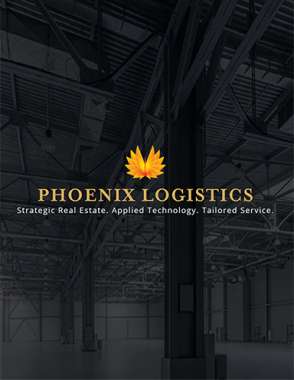4 Other Drivers of Industrial Real Estate Demand Besides Ecommerce

While e-commerce fulfillment might dominate headlines and account for the largest portion of demand, other business types also require the industrial real estate to operate.
ECOMMERCE BOOM
An ongoing ecommerce boom has caused an unprecedented demand for fulfillment space, resulting in record low vacancy rates across the United States, not to mention skyrocketing asking prices and rents.
Despite some signs of cooling demand, it’s unlikely that supply and demand will even out this year - and maybe not next year, either.
With ecommerce leading the charge and retail giants snapping up available properties at every opportunity, other industrial real estate users have struggled to find viable space.
WHO ELSE NEEDS INDUSTRIAL REAL ESTATE?
While e-commerce fulfillment might dominate headlines and account for the largest portion of demand, other business types also require the industrial real estate to operate. Here are some of the other verticals driving up demand for industrial space:
MANUFACTURERS
Rumors of a U.S. manufacturing renaissance have persisted for decades, with little tangible activity to actually show for it. Now, however, U.S. businesses have suffered years of supply chain pandemic-related supply chain disruptions on top of already-tense trade relations with China. As a result, companies have begun actively taking steps to reshore their production assets and eliminate the complexities of global trade from supply chains.
Additionally, many U.S. businesses have chosen to source from U.S.-based manufacturers rather than continue relationships with unreliable overseas suppliers. This influx of business has created expansion needs for many U.S. suppliers, further contributing to the spike in demand for industrial properties.
TRANSPORTATION
E-commerce demand, port backlogs, supply chain restructuring, and numerous other factors have created strong demand for transportation capacity in recent years. Trucking and rail carriers rely on industrial properties for numerous purposes, including:
- Fleet parking/storage
- Trailer parking/storage
- Intermodal container lots/storage
- Inland ports
- Transloading
- Cross-docking
- Drop-and-hook lots
- Rail freight terminals
When capacity gets tight, carriers attempt to expand their fleets. However, expansion is limited by the space the carrier has to store its equipment.
NON-RETAIL STORAGE
While retail and e-commerce fulfillment get most of the attention, many warehouses and storage facilities have no direct relation to the retail sector. Regardless, these other storage verticals also need access to industrial real estate to operate and expand. Some examples of non-retail storage may include:
- Raw material/component storage for manufacturers
- Self-storage facilities that rent to consumers
- Storage for museums, universities, etc.
- Government storage facilities
- Medical storage facilities
The lack of available space has made it challenging for these and other types of non-retail storage users to find appropriate space to keep inventory, especially during the pandemic when most organizations were trying to locate and hold essential items.
DATA CENTERS
Virtually every industry has started moving away from on-premise legacy systems in favor of more affordable and easily managed cloud technologies. Consumers have also jumped on the cloud for simplified file storage, gaming, banking, apps, and numerous other purposes. Thanks to this rapid expansion of cloud-based solutions, the need for data centers has grown exponentially in recent years.
While data centers require industrial space, they also have specialized infrastructure requirements that rule out some available industrial facilities. This challenge can make it exceptionally difficult for companies to find suitable locations for new data centers.
As you can see, even if consumer demand eventually eases and e-commerce sellers dial back their expansion plans, other industrial stakeholders should step in and fill some of that void.
More on PHOENIX LOGISTICS WAREHOUSING
ABOUT PHOENIX INVESTORS
Founded by Frank P. Crivello in 1994, Phoenix Investors and its affiliates (collectively “Phoenix”) are a leader in the acquisition, development, renovation, and repositioning of industrial facilities throughout the United States. Utilizing a disciplined investment approach and successful partnerships with institutional capital sources, corporations, and public stakeholders, Phoenix has developed a proven track record of generating superior risk-adjusted returns, while providing cost-efficient lease rates for its growing portfolio of national tenants. Its efforts inspire and drive the transformation and reinvigoration of the economic engines in the communities it serves. Phoenix continues to be defined by thoughtful relationships, sophisticated investment tools, cost-efficient solutions, and a reputation for success.
More Supply Chain 24/7 Content from Phoenix Logistics
Article Topics
Phoenix Logistics News & Resources
4 Best Practices for Online Order Fulfillment In 2023 Is Industrial Real Estate Recession-Proof? 9 Tips for Offsetting Rising Parcel Rates Tips for Retaining Your Peak Season Temp Labor The Great Decoupling and What It Means for Industrial Real Estate How Does the Inflation Reduction Act Impact Industrial Real Estate? Not in My Backyard: Warehouse Edition More Phoenix LogisticsLatest in Warehouse|DC
Biden Gives Samsung $6.4 Billion For Texas Semiconductor Plants Walmart Unleashes Autonomous Lift Trucks at Four High-Tech DCs Plastic Pollution is a Problem Many Companies are Still Ignoring The Harsh Reality for Amazon and Walmart Warehouse Workers Supply Chain Stability Index: “Tremendous Improvement” in 2023 AI Not a Priority for Retailers and CPG Companies US Government Commits $6.6B to Boost Semiconductor Production More Warehouse|DC













